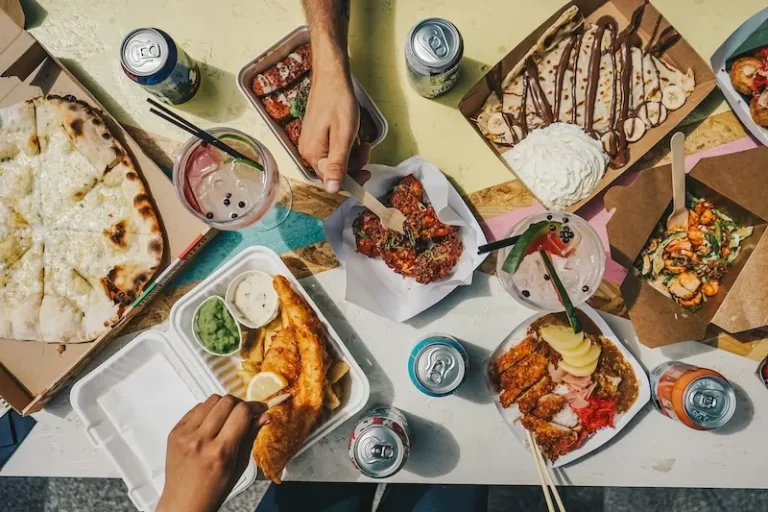What is processed food?
A Guide to Understanding Its Impact on Your Health

Processed food has become a staple in many diets, but what exactly does it mean, and how does it affect your health? In this guide, we’ll explore what processed food is, the risks it poses, and how you can make healthier choices to protect your body and mind.
What is processed food?
Processed food refers to any food item that has been altered from its natural state. This can include methods like cooking, curing, smoking, fermenting, or adding preservatives and other ingredients. The level of processing varies widely:
-
Minimally processed foods: Examples include bagged spinach, roasted nuts, or frozen vegetables. These retain most of their natural nutrients.
-
Heavily processed foods: Think frozen meals, sugary snacks, and ready-to-eat meals. These often contain added sugars, unhealthy fats, and artificial additives.
The Risks of Processed Food
Mounting evidence highlights the dangers of consuming too much processed food. Studies, including one published in the British Medical Journal, have linked high consumption of processed foods to a range of health issues, such as:
-
Anxiety and depression
-
Obesity and metabolic syndrome
-
Certain cancers, including colorectal cancer
-
Premature death
This data comes from over 9 million participants across numerous studies, making it a significant concern for public health.
As Melissa Lane from Deakin University in Australia stated:
“Taking the body of literature as a whole, there was consistent evidence that regularly eating higher, compared to lower, amounts of ultra-processed foods was linked to these adverse health outcomes.”
The Global Picture
Who’s Eating the Most Processed Food?
The NCBI’s analysis of ultra-processed food (UPF) consumption reveals stark differences between countries:
-
The United States and the United Kingdom top the list, with over 50% of daily calories coming from UPF.
-
In contrast, countries like Italy have much lower levels, at around 10%.
In the US, more than half of daily calories come from processed foods. While these foods are often cheaper, the long-term healthcare costs associated with poor diets are staggering.
How Processed Food Affects Your Body
Our bodies are incredible machines, working every second of the day using billions of cells. But when we fuel them with processed rubbish, they struggle to function properly.
Think of it this way: if you filled your car with poor-quality fuel, you wouldn’t expect it to run smoothly. The same goes for your body.
While our bodies are intelligent and can adapt to poor diets for a while, this resilience doesn’t last forever. Over time, the lack of proper nutrients and the overload of toxins can lead to fatigue, illness, and a weakened immune system.
As the saying goes, “You are what you eat.” If you consume processed food regularly, your cells will eventually reflect that poor quality.
Ultra-Processed Foods
What to Watch Out For
Ultra-processed foods are everywhere, from fast food to sugary drinks and packaged snacks. They’re often high in salt, sugar, unhealthy fats, and calories, while being low in fibre and essential nutrients like vitamins.
Common examples include:
-
Highly refined breads
-
Sugary cereals and cookies
-
Fast food
-
Packaged snacks
One telltale sign of ultra-processed food is its ingredient list. If it includes substances you wouldn’t find in your kitchen—like high-fructose corn syrup, hydrogenated oils, or artificial additives—it’s best to avoid it.
The Sugar Trap
Hidden Names to Look Out For
The food industry often disguises sugar under different names to trick consumers. Here are some common ones to watch for:
-
Brown sugar
-
Cane sugar
-
Inverted sugar
-
Corn sweetener
-
Dextrin
-
Molasses
Sugar not only triggers your appetite, making you crave more, but it also leads to energy crashes, leaving you feeling tired and irritable.
How to Make Healthier Choices
The Eatwell Guide from the NHS in the UK provides a clear framework for a balanced diet. Here are some practical tips:
-
Fill half your plate with fruits and vegetables.
-
Choose whole grains over refined grains.
-
Limit ultra-processed foods and opt for whole, natural options.
-
Learn to read food labels. Ingredients are listed in order of quantity, so if sugar, refined grains, or hydrogenated oils are at the top, steer clear.
Don’t Be Fooled by Health Claims
Words like “multigrain,” “light,” or “natural” on packaging can be misleading. Even “organic” doesn’t always mean a product is healthy. Always check the ingredient list and do your research.
The Link Between Diet and Mental Health
Your diet doesn’t just affect your physical health—it impacts your mental well-being too. Studies show that adults who maintain a healthy diet experience fewer depressive symptoms.
A French study found that sticking to a Mediterranean diet in mid-life is linked to a lower risk of depression, particularly in men. On the flip side, diets high in processed foods are associated with mood swings, anxiety, and depression.
Takeaway
Small Changes, Big Impact
Choosing whole foods over processed options can transform your health. By prioritising nutritious meals and minimising processed food intake, you can support both your physical and mental well-being.
As the old adage goes, “You are what you eat.” So, why not start making healthier choices today?
Recommended Reading
If you’re looking to dive deeper into the world of food and nutrition, here are some excellent books to explore:
-
You Are What You Eat: The Plan That Will Change Your Life – A guide to eating well.
-
The Secret History of Food – A fascinating look at the history of food.
-
Essentials of Food Science – A science-based exploration of food.
-
The Intuitive Eating Workbook: Ten Principles for Nourishing a Healthy Relationship with Food – Learn how to eat mindfully.
-
Toxic Free Diet: Learn How to Reduce Toxic Stress, Foods, and Chemicals That Are Making You Fat, Sick, and Tired – A guide to eliminating harmful additives from your diet.
By making informed choices, you can take control of your health and well-being. Your body is a temple—treat it with care!












